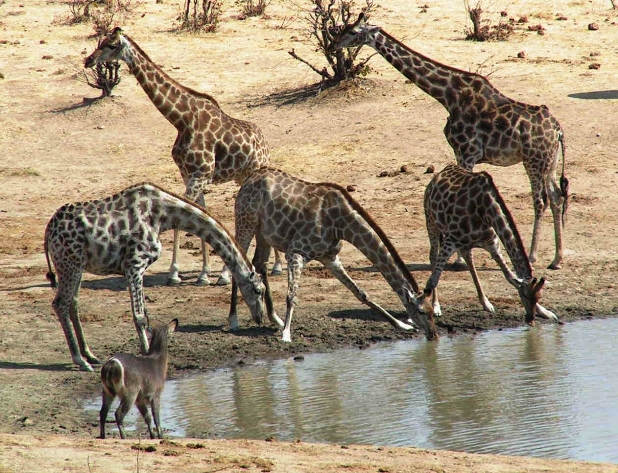The legendary Kruger National Park in South Africa is the area with the greatest diversity of wildlife in Africa. Born as the Sabie Reserve in 1898 to protect the wildlife from over-hunting, the area was enlarged and proclaimed as the Kruger National Park in 1926.
The Park today not only protects the wildlife but also the cultural history of the area through museums and the preservation of historical sites. One of the best ways to experience these historical sights is via the standard and superior accommodation in the area. Some of the lodges are very colonial and instantly draw you back to the past with their old world feel.

Ecosystems within the Kruger Park are highly varied. Six rivers feed the park – an area that encompasses an astonishing 16 vegetation zones including 1980 plant species and 300 tree species.
Seasons: The best time to see game is during the winter months (April – September), as water is restricted to rivers and waterholes, where the wildlife congregates. Visibility is also good as the vegetation is less dense. Summer (October to March) is lovely due to the rains – everything is lush and green, and the birding is excellent. November and December are the calving months.
Wildlife: You should see: elephant, giraffe, zebra, buffalo, warthog, lion, spotted hyaena, baboon, hippo, impala, kudu, vervet monkey, waterbuck, tsessebe, wildbeest, bushbaby, mongoose, duiker, steenbok, klipspringer, genet, bats. You may see: leopard, wild dog, cheetah, roan antelope, sable antelope, bat-eared fox, rhino, honey badger, porcupine, rhebok, aardvark, aardwolf, civet, caracal, serval, suni.
Birds: You should see: vultures, owls, bee-eaters, rollers, eagles, bustards, hornbills, starlings, shrikes.
Precautions: Malaria area – minimize mosquito bites by wearing light, long sleeved clothing and using effective insect repellents (containing Diethyltoluamide DEET) on exposed skin. Sleep under treated mosquito netting or ensure that the doors and windows of your accommodation are screened against mosquitoes. Having a fan or air-conditioner on at night will further suppress mosquito activity.
